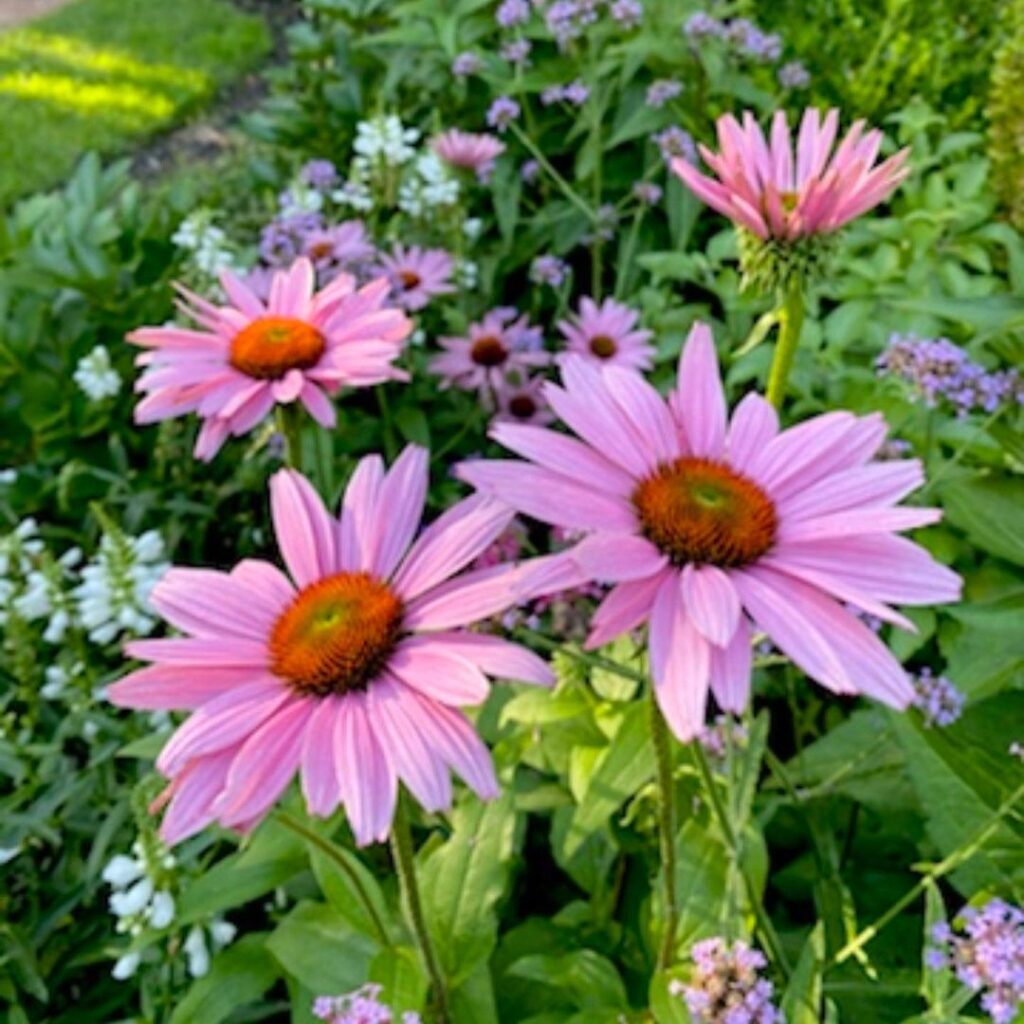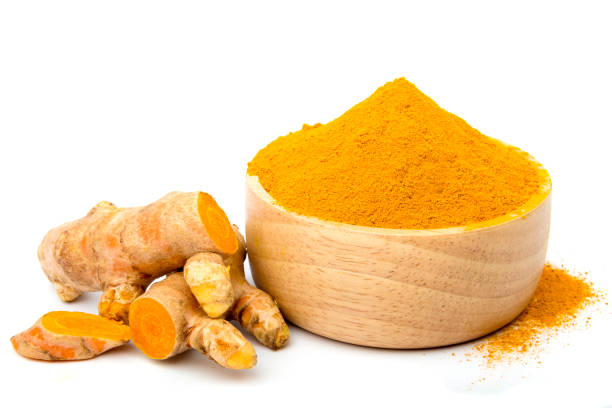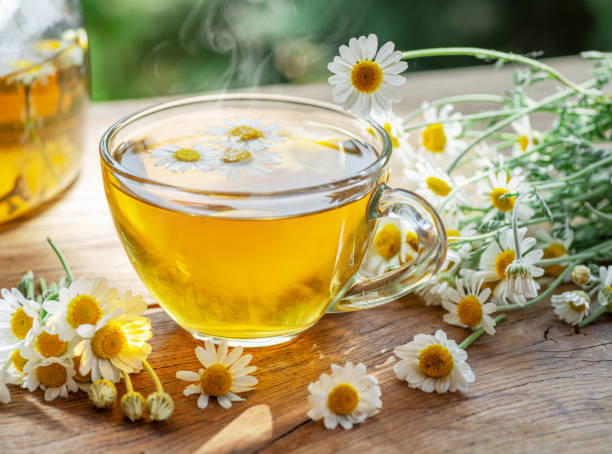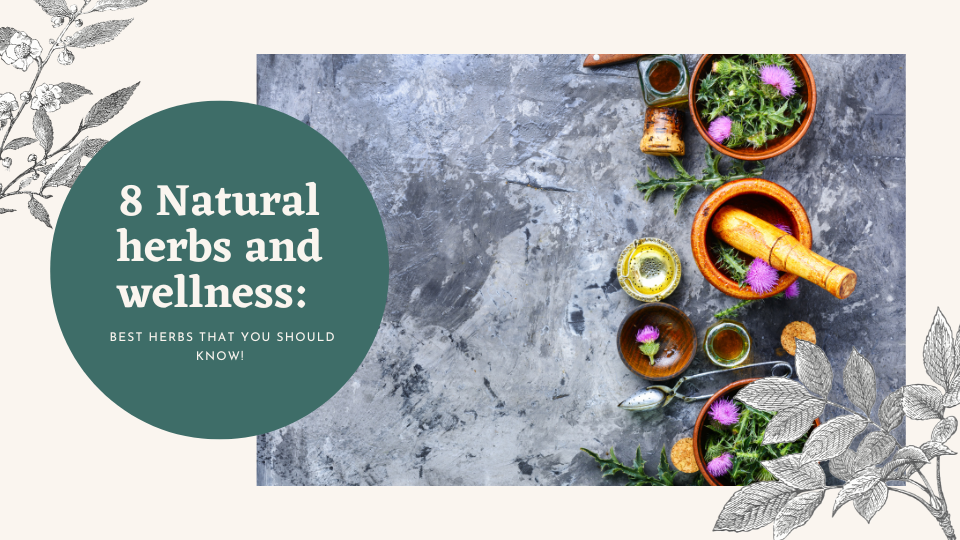Have you ever wonder about natural herbs and wellness? Nearly everyone desires excellent health, at least most of the time. Therefore, it is not unexpected that individuals always search for methods to enhance their health. In truth, humans have been employing natural medicines and natural therapies to attain this purpose for centuries. You should find natural herbs and wellness the ideal combo for a high-quality, healthy, and active lifestyle.
Table of Contents
What are natural herbs and wellness

Natural herbs comprise a diverse group of plants that have been valued for their therapeutic qualities for years and throughout many cultures. They have been used to treat various ailments, including mental health difficulties such as depression and anxiety, respiratory disorders such as the common cold or asthma, digestive problems such as diarrhea or constipation, and even skin conditions such as psoriasis or eczema.
Like a tree, a plant that does not have a woody stem is referred to as a “herb,” and this phrase is used to describe such a plant. Herbs are often used in the kitchen, but they also have been used in the medical and pharmaceutical fields.
One of its advantages is the ability to heal. After all, they are plants; as such, people worldwide have been using them as medicines for thousands of years. Some of these treatments date back much further. They were renowned for their capacity to cure, and even today, many individuals still feel that natural herbs are more effective than contemporary medications at maintaining their health and vitality.
Best Natural Herbs and Wellness
Natural herbs and wellness: Echinacea

Echinacea, sometimes known as coneflower, is a famous blooming plant and herbal treatment. Native Americans cure many diseases, including wounds, burns, toothaches, sore throat, and stomach discomfort.
The whole plant, including the leaves, petals, and roots, may be used medicinally. However, the sources provide the most powerful impact. Echinacea is often consumed as a tea or dietary supplement. However, it may also be administered topically.
Natural herbs and wellness: Ginseng
Ginseng is a medicinal plant with roots often brewed into tea or dehydrated into a powder. Traditional Chinese medicine is widely used to decrease inflammation and increase immunity, cognitive function, and vitality. Panax ginseng and Panax quinquefolius, the Asian and American forms, are the two most popular. It is believed that American ginseng promotes relaxation, whereas Asian ginseng is more stimulating.
Natural herbs and wellness: Ginkgo biloba
Ginkgo biloba, also known as ginkgo, is a herb produced by the maidenhair tree. Ginkgo, a plant Native to China, has been used in traditional Chinese medicine for millennia and is a popular herbal supplement today. It includes several powerful antioxidants believed to give a variety of health advantages.
The seeds and leaves are historically used to prepare teas and tinctures, although leaf extract is employed in most current uses.
Natural herbs and wellness: Elderberry
Elderberry is a traditional herbal remedy derived from the Sambucus nigra plant’s cooked fruit. Constipation, headaches, nerve pain, toothaches, colds, viral infections, and toothaches have been treated with this herb for centuries. Today, it is largely promoted as a therapy for influenza and common cold symptoms.
Although there is no set dose, elderberry is accessible as a syrup or lozenge. Some individuals choose to prepare syrup or tea by combining elderberries with honey and ginger.
Natural herbs and wellness: Turmeric

The herb turmeric (Curcuma longa) is a member of the ginger family. It has been used for years in cooking and medicine, and its significant anti-inflammatory qualities have recently gained widespread notice. Curcumin is the principal active ingredient in turmeric. Multiple illnesses, including chronic inflammation, pain, metabolic syndrome, and anxiety, may be treated with this substance.
Natural herbs and wellness: Ginger
Ginger is a typical component and herbal remedy. It may be consumed fresh or dry, although its primary therapeutic forms are tea and capsules. Ginger is also used for weight loss.
Similar to turmeric, ginger is an underground stem or rhizome. It has a range of medicinal components and has been used for years to heal colds, nausea, headaches, and high blood pressure in traditional and folk medicine. Its most common current use is to alleviate nausea related to pregnancy, chemotherapy, and medical procedures.
Natural herbs and wellness: Valerian
The roots of valerian, a flowering plant often referred to as “nature’s Valium,” is said to generate peace and a calm sensation.
Valerian root may be dried and taken as capsules or brewed into tea.
It was used in ancient Greece and Rome to treat restlessness, tremors, migraines, and heart palpitations. Currently, it is most often used to treat insomnia and anxiety.
Natural herbs and wellness: Chamomile

Chamomile is a blooming plant and one of the world’s most widely used herbal remedies.
The dried leaves may produce tea, medicinal extracts, or topical compresses. For thousands of years, chamomile has been used as a treatment for nausea, diarrhea, constipation, stomach discomfort, urinary tract infections, wounds, and upper respiratory infections.
FAQs
Is it hard to get a job at Nature’s Herbs & Wellness Center?
It is not difficult to get employment at Nature’s Herbs & Wellness Center. The firm has been in existence for decades and has a decent reputation in the market. They often recruit individuals that are eager to learn about the medicinal marijuana industry. If you are seeking a job shift, this may be a suitable starting point.
What are the benefits of natural herbs?
Herbal use may prevent and treat cardiovascular disease, cancer, and diabetes. Additionally, it may aid in preventing blood clots and has anti-inflammatory and anti-tumor effects. Ongoing research indicates that garlic, linseed, fenugreek, and lemongrass may help reduce cholesterol.
Why are herbs so powerful?
Herbs have significant anti-inflammatory effects that decrease inflammation and pro-inflammatory markers in the cells, so mitigating the risk of chronic illnesses and enhancing the normal function of cells, tissues, and nerves. Herbs such as turmeric, cayenne pepper, licorice, and boswellia possess these qualities.
Who is king of herbs?
Basil is the king of herbs and a versatile plant. A flavorful mainstay of Mediterranean cuisine and a reputed remedy for several diseases. In India, he was worshiped as a saint, while in ancient Egypt he was revered as a protector of the dead.
Conclusion
Numerous individuals over the globe depend on herbal remedies to manage health concerns. Multiple types exist, but ginseng, ginger, turmeric, and chamomile are among the most popular.
Despite their broad applications, many of their purported advantages need more scientific proof. As with conventional medications, herbal therapies may interact badly with other medicines. Before introducing a new herb or supplement to your regimen, it is advised that you check with a healthcare professional.

